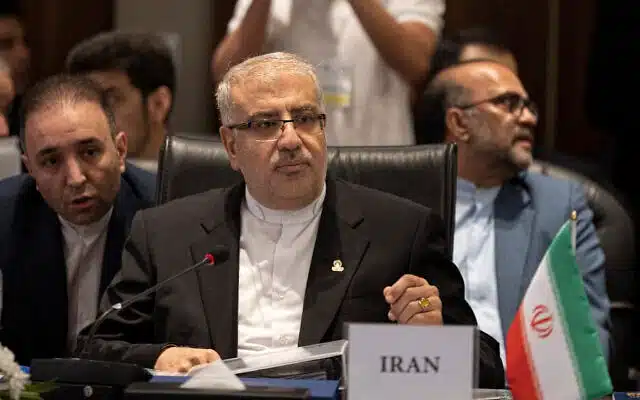In a recent development that has escalated tensions in the Middle East, Iran’s Oil Minister, Javad Owji, has pointed the finger at Israel for orchestrating a series of explosions that targeted Iranian gas pipelines last week. According to statements made by Owji to the semi-official Tasnim News Agency, the incidents, which occurred last Wednesday in southwestern Iran, are being described as a deliberate act of sabotage by Israel. Although the damage was reportedly limited with only a few pipelines affected, the allegations have stirred international concern over the covert operations and the ongoing “shadow war” between Tehran and Israel.
The explosions rocked major pipelines, causing a temporary disruption in the gas supply. However, Owji assured that the gas supply had been swiftly restored to normal levels, downplaying the long-term impact of the attacks. He labeled the explosions a “terrorist act of sabotage” and, while initially refraining from attributing blame, has now openly accused Israel of being behind the operation. This marks a significant escalation in the rhetoric from Iran, which has often found itself at odds with Israeli policies and actions in the region.
Israel, known for its policy of neither confirming nor denying its involvement in espionage and covert missions abroad, has yet to respond to these allegations. The country has a history of engaging in clandestine operations against its adversaries, particularly Iran, with whom it shares a deep-seated animosity. The two nations have been locked in a shadow conflict, characterized by cyber attacks, espionage, and indirect engagements that rarely surface in public discourse.
The strategic significance of the targeted pipelines cannot be understated, as they are crucial to Iran’s domestic energy supply and its economy at large. Iran, rich in oil and natural gas reserves, relies heavily on its energy sector for revenue. Any disruption to its infrastructure poses not only a direct economic threat but also a challenge to its national security.
Also Read: Taiwan’s Defense Ministry Stands Firm: Navigating Rising Tensions with China
This incident comes against the backdrop of a region fraught with tension, where geopolitical rivalries often manifest in indirect confrontations and sabotage. The Gulf region, in particular, has witnessed a series of mysterious attacks on oil and gas facilities in recent years, which have been linked to the broader context of Iranian-Saudi rivalry and the involvement of external powers such as the United States and Israel.
The allegations made by Minister Javad Owji are likely to further strain relations between Iran and Israel, adding another layer of complexity to an already volatile regional security environment. With Iran’s nuclear program often cited as a point of contention, the international community remains on edge as it navigates the delicate balance of diplomacy and deterrence in the Middle East.
Also Read: Assange’s Last Stand: UK Showdown with Uncle Sam
As the situation develops, the global community watches closely, hoping for a de-escalation of tensions. The prospect of open conflict remains a grave concern, with the potential to disrupt not only regional stability but also global energy markets. The incident underscores the need for a renewed focus on diplomacy and dialogue, as the alternative could have far-reaching consequences for regional and international peace and security.




